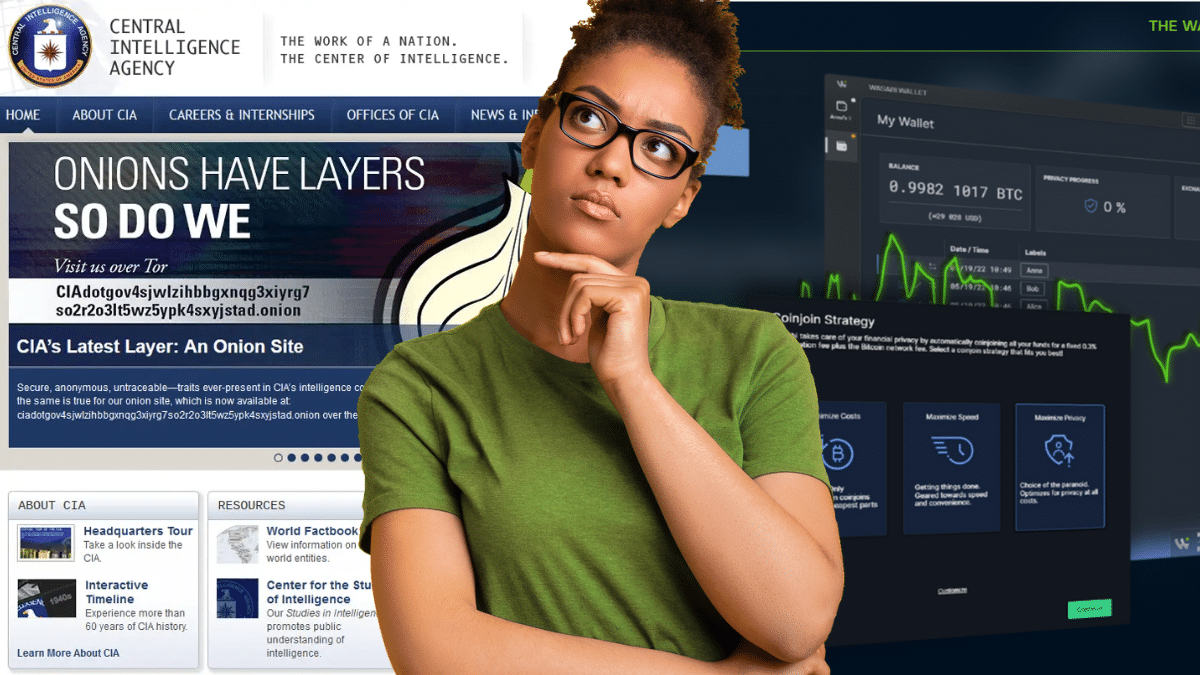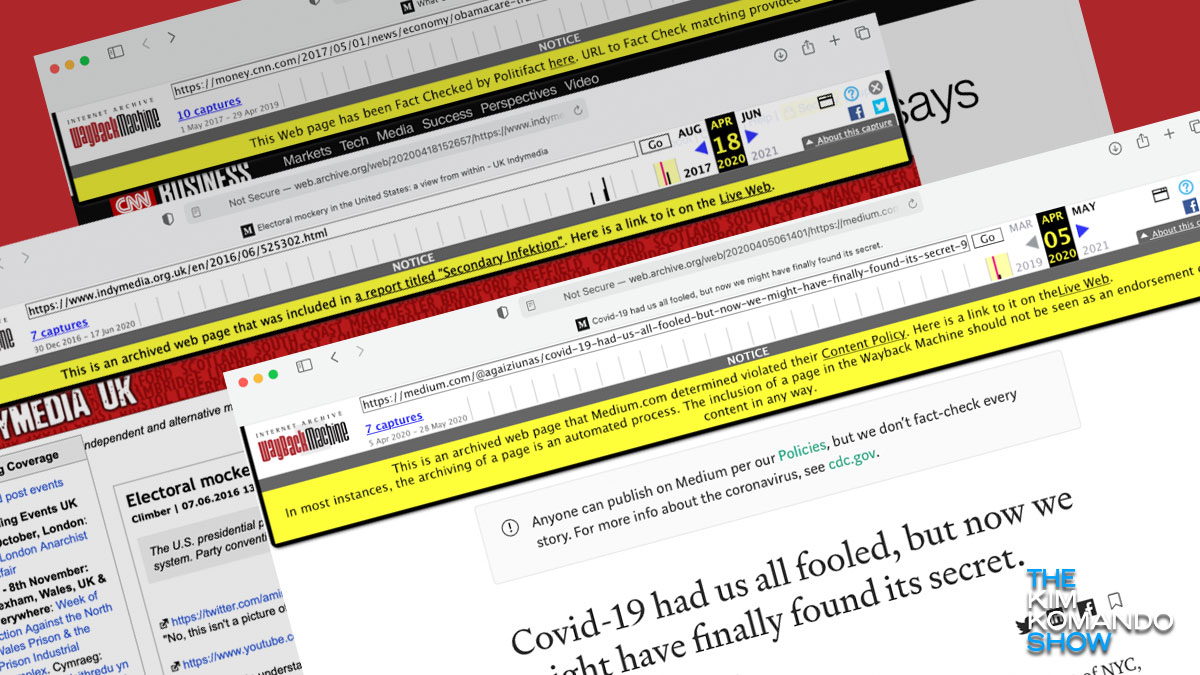The Supreme Court made a surprising decision on a social media censorship case involving Missouri and Louisiana. Find out why their lawsuit didn’t go as planned.
4 ways the Dark Web can help you (It's not all bad!)

Although the Dark Web is most famous for its seedy underworld connections, there are a few advantages. That’s right: Despite the dangers, there are a few unexpected ways it can make your life easier. For example, circumventing censorship is one of the most significant Dark Web upsides.
If you explore the Dark Web, use a VPN and antivirus software because it has cybersecurity dangers. If you protect yourself adequately, there are ways the Dark Web can help you.
1. Browse the internet privately
Dark Web refers to “onion sites,” which you can’t search for on Google or other standard search engines or browsers. Most Clearnet websites use domains like www.komando.com, which represent different IP addresses.
These IPs identify different sites on the internet. We’re getting into the weeds, but all you need to know is that this central control makes it easy for influential organizations to track you across the web. It also paves the way for censorship.
Bottom line: When you use the Clearnet, you’re browsing at the mercy of those in power. They can shut down websites you rely on, track you across the web and use your data for their purposes. Use this tool to see how websites track you.
Onion sites drop all of this baggage. Dark Web sites let you access the web without using a domain name system (DNS). Thus, you don’t have to worry about censorship — or privacy invasions.
2. Read news stories from around the world
Let’s say you’re traveling. You have to spend some time in a country with heavy government censorship. While there, you realize you can’t access the New York Times, BBC, ProPublica or other news sites.
This is common. Many world leaders want to control their people’s access to information. Luckily, you can access these news publications on the Dark Web. You can use a TOR browser to access the Dark Web. Tap or click here to learn how.
RELATED: Yikes! Watch out for this porn scam that could cost you
3. One of the best Dark Web upsides is how it helps students
Check out these headlines reacting to Elon Musk’s purchase of Twitter

After weeks of speculation and corporate wrangling, Twitter’s board approved Elon Musk’s $44 billion purchase. It’s big news for the tech industry and social media platforms, but not everybody is thrilled.
Many media outlets are concerned about what it could mean for Twitter in the future.
Yesterday's Supreme Court ruling on social media
🛑 Big Tech, big trouble: President-elect Donald Trump has chosen Brendan Carr to lead the Federal Communications Commission. His first order of business? Cracking down on tech companies like Google and Meta for censorship and content moderation. What’s standing in his way? The FCC needs Congress’ permission to make changes.
Elon Musk says Twitter fails on free speech - Now he's its largest shareholder

Your privacy is always at risk when you use social media. Even as companies add more options to protect your identity and information, you’re still putting it all out there.
Twitter forbids users from sharing other people’s personal details, and the platform recently added to that rule. You can no longer share photos and videos of others without their consent. Tap or click here for our report.
Hackers built a tool to let you text Russian citizens about the war

Shortly after the invasion of Ukraine, Russian President Vladimir Putin started to tighten his government’s grip on information. Not only blocking what average Russians can say but also preventing sources from broadcasting about the invasion to Russian audiences.
DuckDuckGo changes its RULES about what you see in search results

Your browser choice can be based on anything from customization options to cosmetic features. The most crucial factor to pay attention to is privacy, however. Some browsers track your web activity and sell it to third parties, while others don’t store any data of you or your searches.
The next Parler? What to know about this Twitter alternative

Social media has never been more popular, and new platforms seem to be launched often. Not all of them make it past the initial release, though. Take Parler as an example. Beyond the flurry of new users at launch, it was eventually pulled from various app stores.
What's on the Dark Web? These are the top 5 sites in 2021

When most of us think of the Dark Web, our mind goes straight to the worst-case scenarios. We think of assassins, poison, illegal drugs and creepy red room videos. But these hidden corners of the internet aren’t all darkness and depravity.
Want to know where a product was manufactured? Check this site

During the pandemic, virtual travel gained traction when flights were restricted, and countries implemented quarantine or outright bans to travelers. You can go online and take virtual tours around the world without leaving your home.
Marco Rubio wants to stop Big Tech censorship
Senator Marco Rubio is proposing a bill that could rein in the power of Big Tech.
Learn more about your ad choices. Visit megaphone.fm/adchoices
Amazon is banning books and films they don’t like
Big Tech companies have so much power that even a small step creates an earthquake that ripples throughout the world. For instance, Amazon has quietly adopted a new policy against any books or movies with material it considers hate speech.
Why Parler is down and not expected to come back anytime soon

If you weren’t familiar with the social networking app Parler a few days ago, you probably at least know it by name now. Founded in 2018, it was launched as an alternative to other social media sites like Facebook and Twitter.
Americans will pay $32K for internet over a lifetime. Here are 3 ways to cut your bill

If you feel like you’re paying an arm and a leg for internet every month, you’re not imagining things. Americans really do pay more for internet service over a lifetime than almost any other country on earth.
Our internet isn’t exactly the fastest or most stable compared to other countries, so why the high costs? It isn’t government-subsidized for starters, and service providers take a decent sized cut of the profit. Tap or click here to see how to reduce your data usage.
Wayback Machine will now fact-check archived webpages

Fact-checking has become one of the most popular ways to fight disinformation online. You can see it in action on sites like Facebook and Twitter, where certain posts now come attached with annotations for context.
Some believe these moves are a form of censorship by social media companies. Like health professionals, others say it’s the best way to stop disinformation from going viral and harming people. Tap or click here to see how Facebook blocked the spread of a viral COVID-19 conspiracy theory.
TikTok: Is the video-sharing app a national security threat?

If there’s one app that’s defined social media for the past few years, it’s TikTok. Originally designed for sharing videos of karaoke and dancing, the app has skyrocketed to success as a fun, short video platform beloved by Generation Z.
Stay away from this alleged spy tool that's been removed from the app store - again

Updated 02/18/2020 – Since our original report about the ToTok app allegedly spying on citizens for the United Arab Emirates, the app was removed from both Apple’s App Store and the Google Play store in December; however, ToTok became available again for download on the Google Play store in January. The company did not comment on why the app was back.
